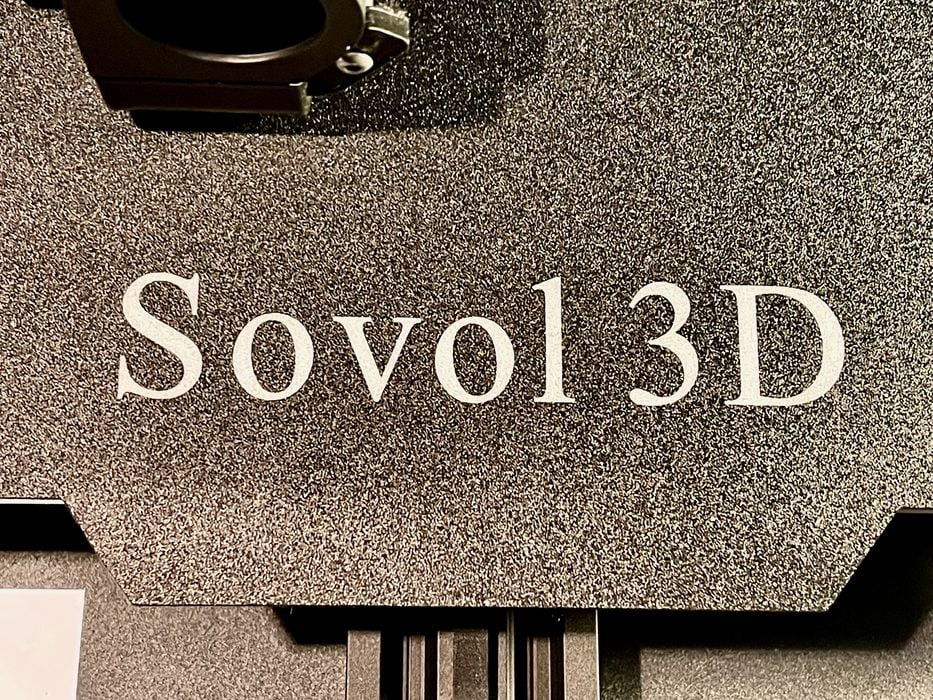
The Sovol SV01 Pro 3D printer spent some time in our lab being tested.
This is part one of a three part series, please read part two and three.
Sovol SV01 Pro 3D Printer Background
You likely haven’t heard of Sovol Technology Co., Ltd. They are a Hong Kong-based operation that seems to have started up only recently in 2019.
In only a couple of years they have developed a line of desktop 3D printers that includes the SV01, SV02 Dual Extrusion, SV03 Direct Drive, SV04 IDEX, and now the SV01 Pro.
It also appears they have developed an even newer machine, the SV05, but that will be for another day.
Sovol SV01 Pro 3D Printer Specifications and Features
The SV01 Pro is an open gantry, desktop device that includes a single, direct drive extrusion system. It operates with 1.75mm filament and has a standard brass 0.4mm nozzle.
The device has a build volume that’s slightly bigger than average for a machine of this class, 280 x 240 x 300 mm, whereas most devices are more in the 200-250 mm range.
There’s quite a few interesting features on this device, some that would normally be found only on more expensive devices.
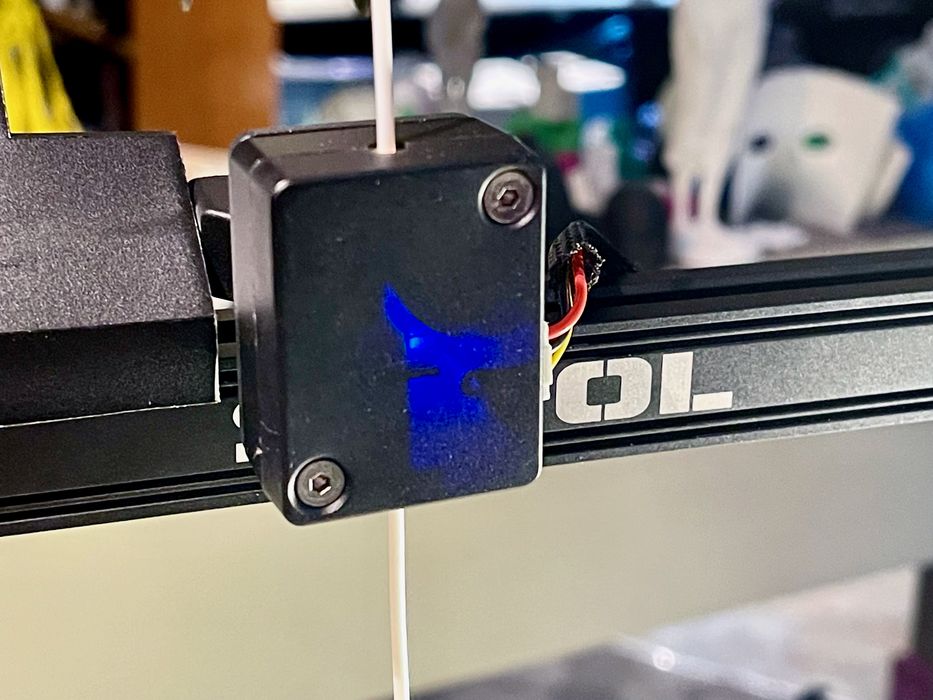
The SV01 Pro has an overtop spool mount, and there’s a filament-out sensor that is mounted in a flexible manner to accommodate differently-sized spools. Should the filament be not detected, the machine pauses and waits for the operator to rectify the situation.
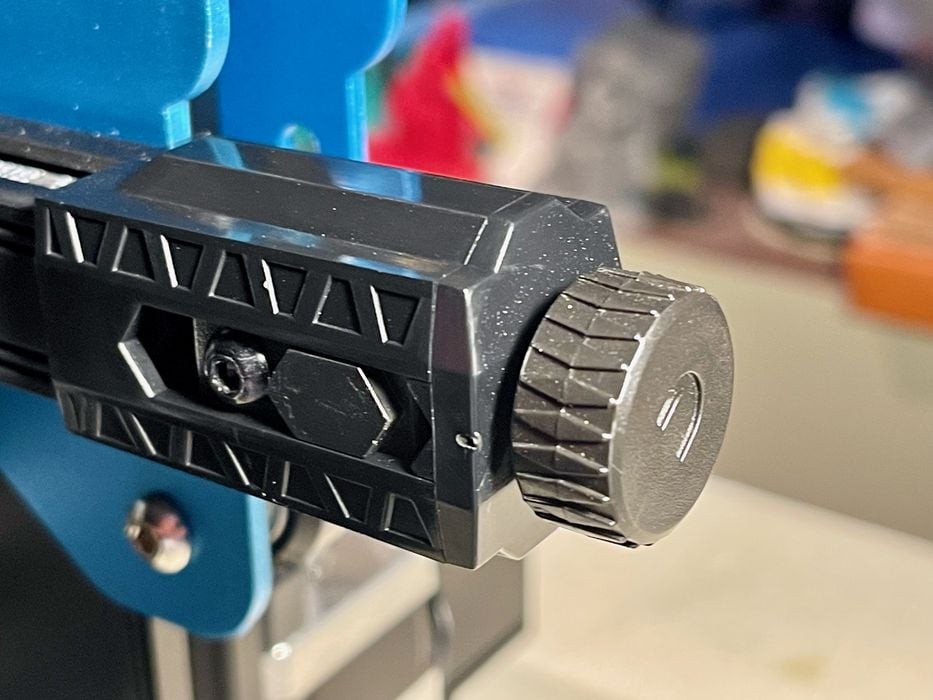
The key features include:
- Color touchscreen with two lighting modes
- Flexible magnetically attached build plate
- 32-bit controller board
- Silent stepper motor drivers for very quiet operation
- Automated leveling process
- All metal direct drive extruder
- Handy knobs for belt tension adjustment
- Power loss detection and recovery process
- Dual threaded rods for more accurate Z-axis movement
- Ability to 3D print PLA, ABS, PETG, and TPU
That’s quite a list of features for a device that lists at only US$329. Let’s find out how it works.
Sovol SV01 Pro 3D Printer Unboxing and Assembly
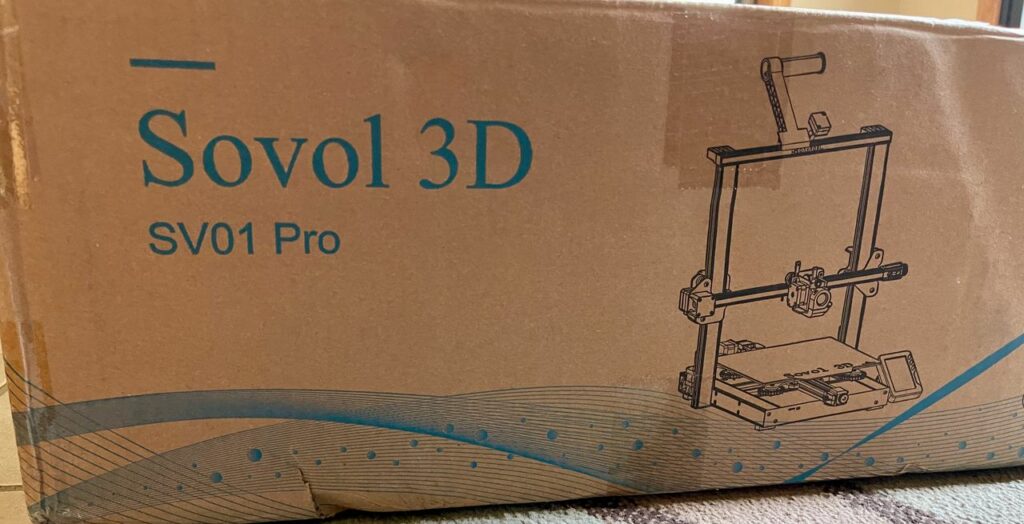
The SV01 Pro is shipped in the standard manner as are most Asian 3D printers. It was packed extremely well, as is usually the case these days for most manufacturers.
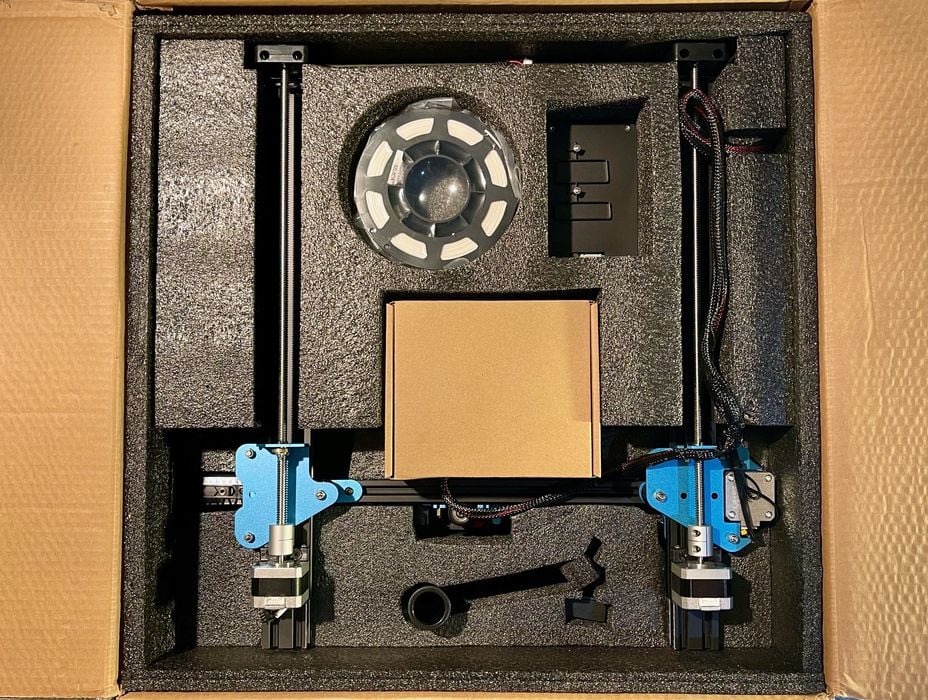
Fortunately, Sovol used the “good” black foam for packing instead of the crumbly white styrofoam we’ve seen recently on other machines.
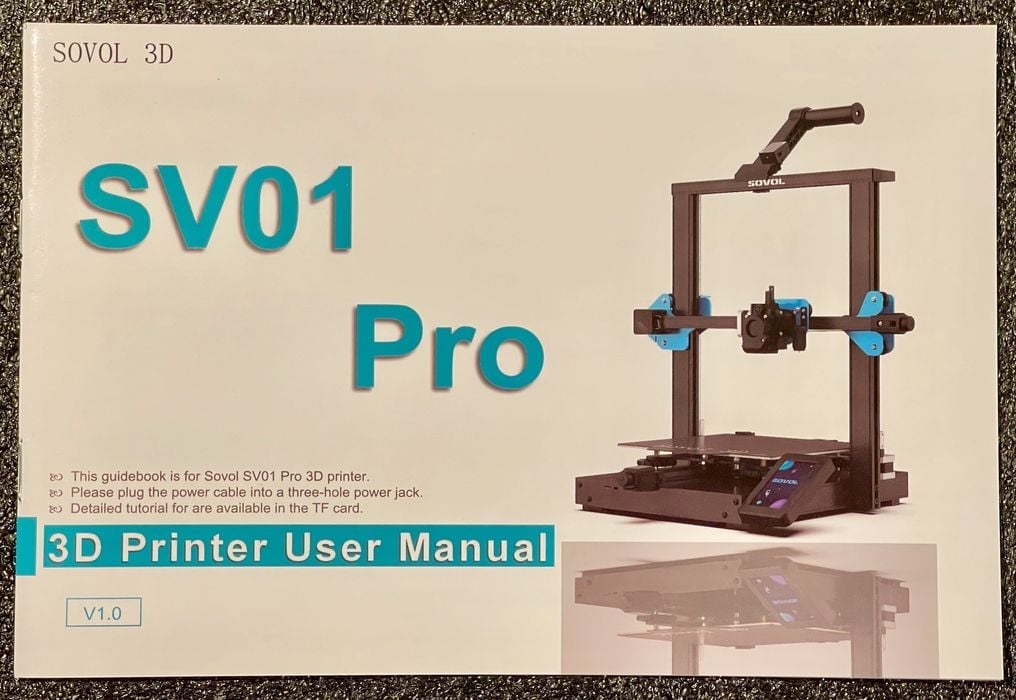
One of the joys of this 3D printer is the printed manual. It’s far better visually than most I’ve seen recently, in particular because it’s large enough to be actually readable.
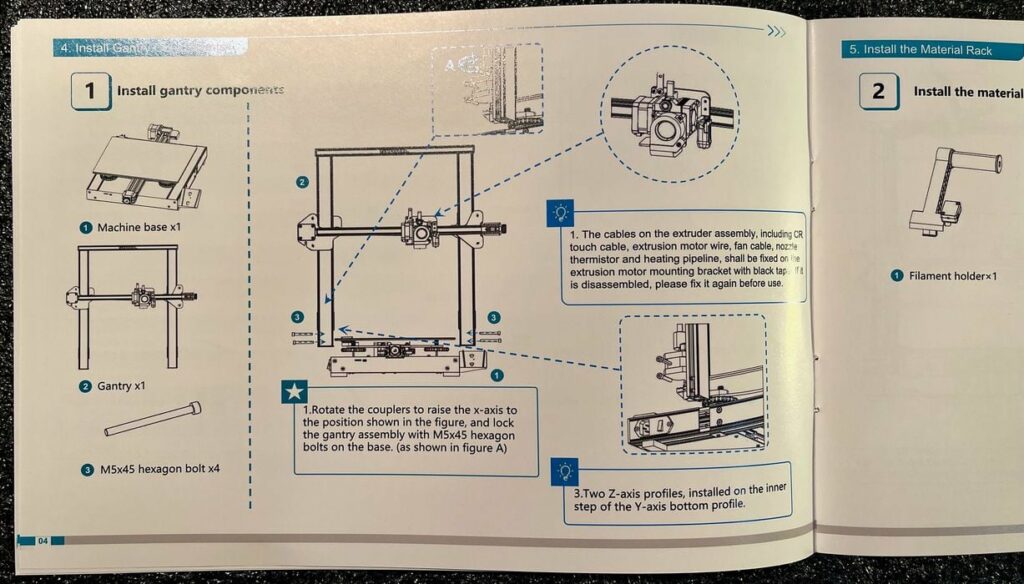
The manual includes what at first seemed to be clear instructions, but that wasn’t always the case. More on that later, but the manual does look good. [UPDATE: Sovol also provides an extensive set of instructional videos that will also assist.]
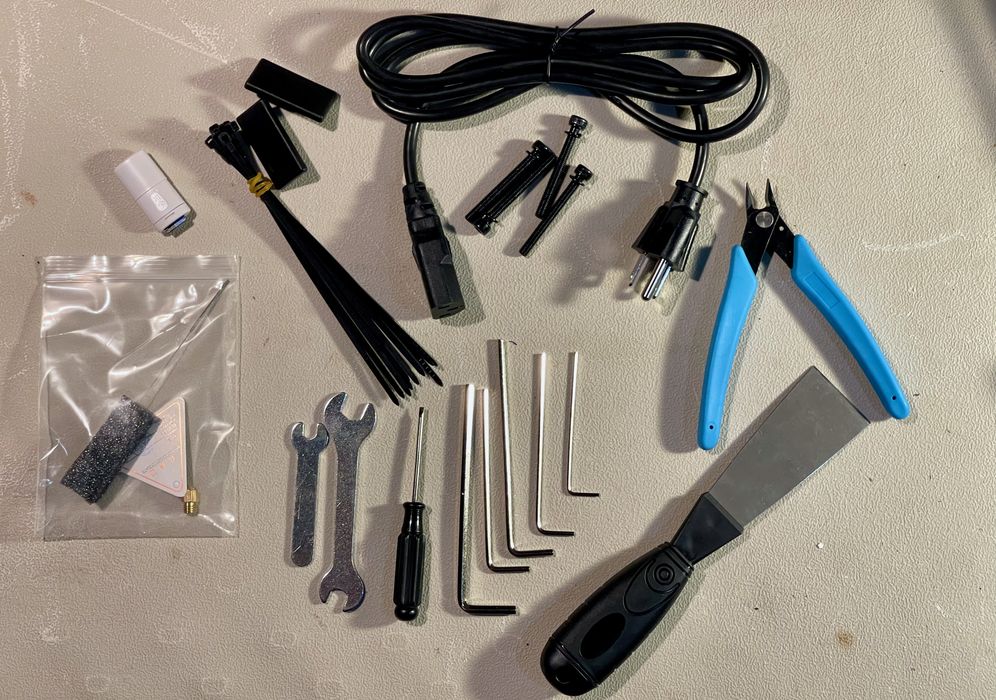
The SV01 Pro ships with the usual assortment of parts and tools, nothing unexpected here. But for those with only one 3D printer, these will be essential.
Assembly is somewhat straightforward, although there were several unexpected twists. Like most gantry-style machines these days, the unit is split into base and gantry portions for shipping.
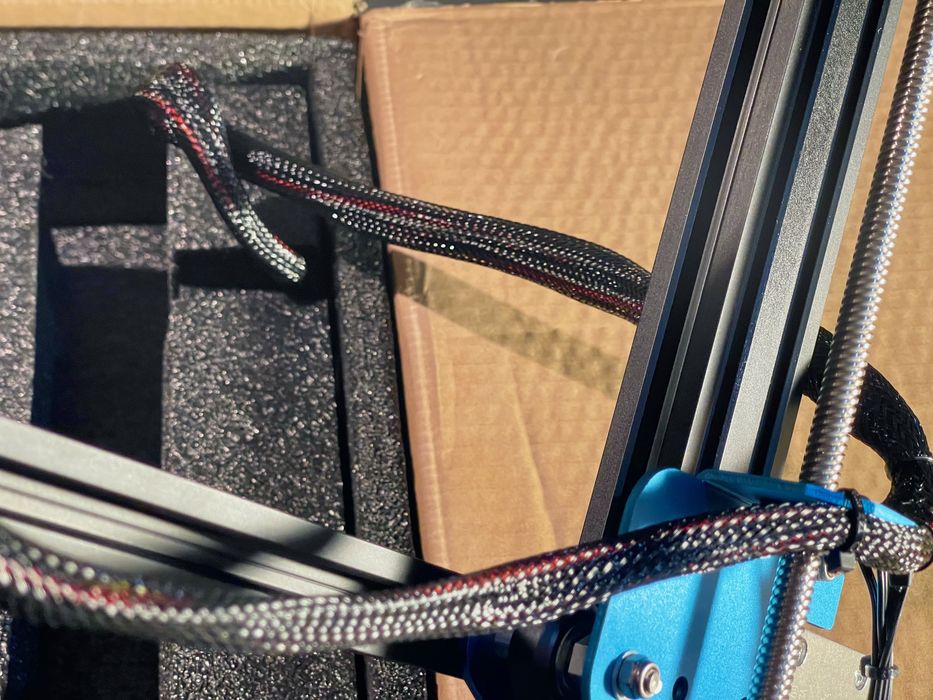
As I removed the gantry from the foam packing, something was a bit weird: one of the cables from the gantry traveled down into the foam. What was this all about?
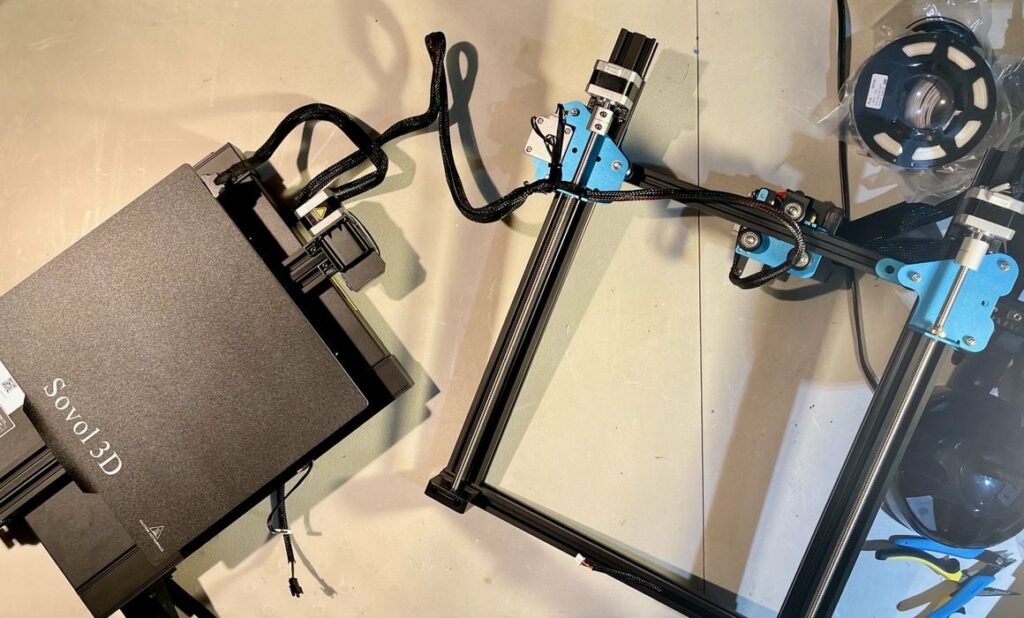
It turns out that the cabling between the gantry and the base are connected at the factory and packed as such — even though the two parts are separated. Therefore you must be very careful lifting out the gantry or you may pull on the cable and damage something.
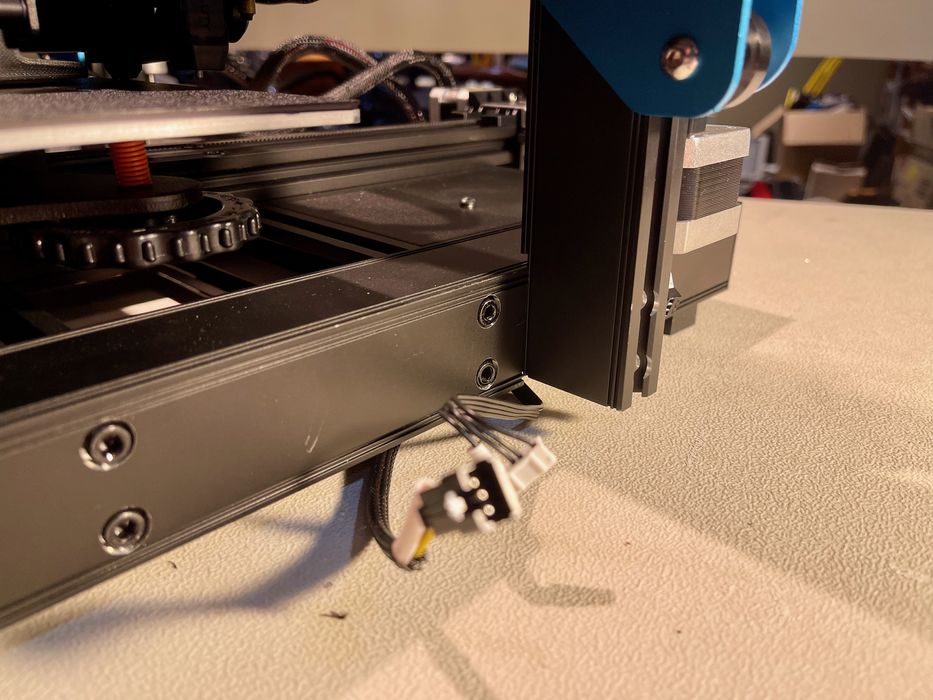
Then I got on to the proper part of assembly, which was mainly bolting the uprights to the base, as much of the cabling was already done. But hold on, the uprights mount on the outside of the base, but the instructions below seem to say otherwise:
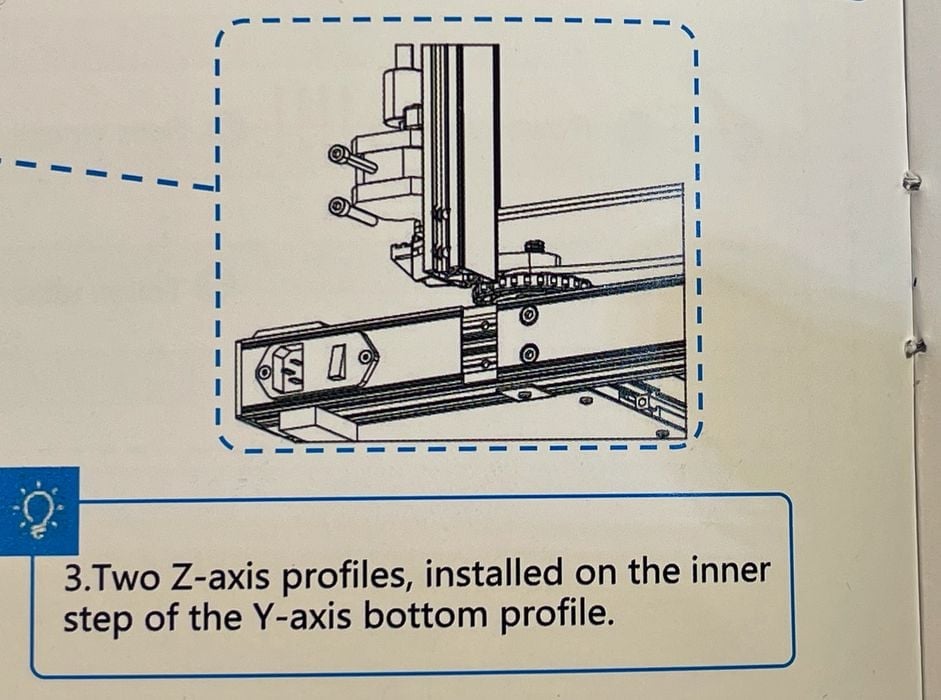
I re-read this several times and concluded it wasn’t written correctly. It seems to suggest to attach the uprights on the inside, but they obviously don’t work that way. The remainder of the instructions seemed correct, however.
Onward with the rest of the assembly, which required some of the stepper motors being plugged in. This was very clear and easy to do.
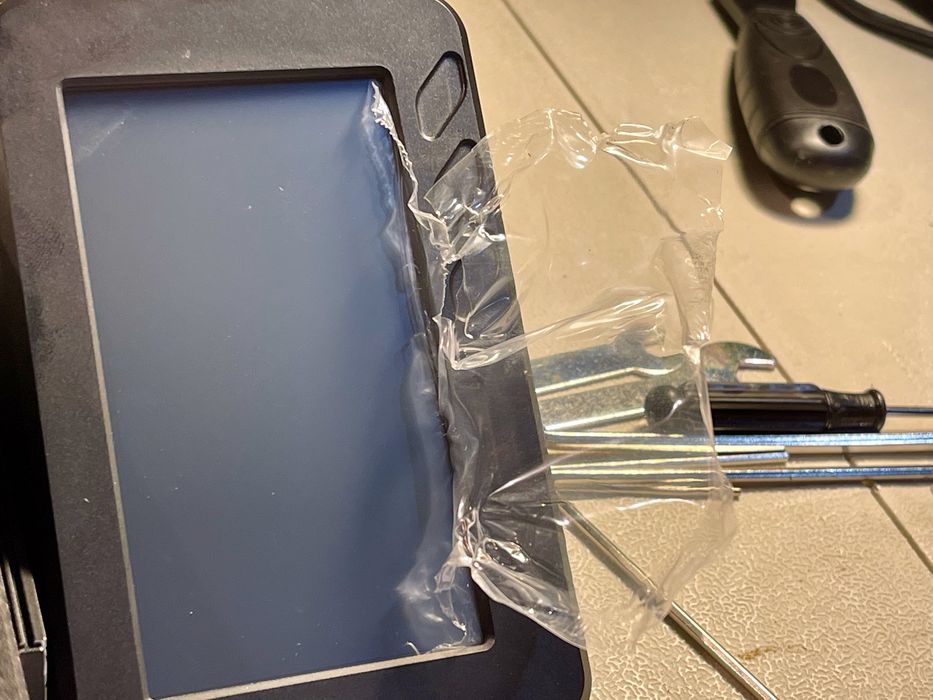
Then I moved on to mounting the control box / touchscreen, which simply slides onto a mount. The screen was properly covered to prevent damage, but I was unable to remove it successfully. There was no satisfying “peel off” here, and I think there is still a tiny bit of plastic sticking out of the side of the screen.
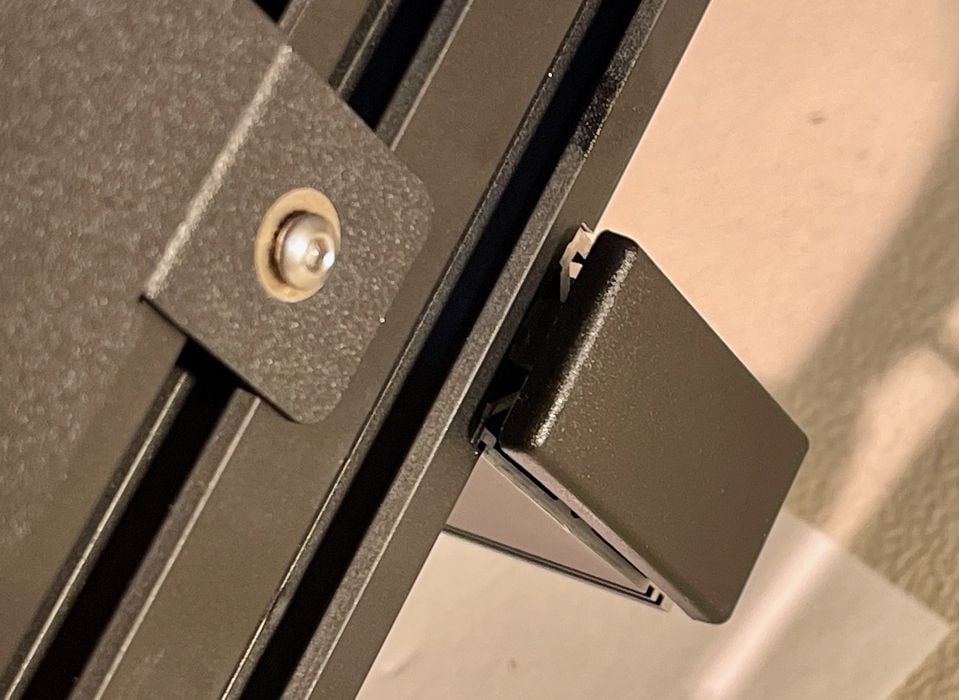
I did have a problem with the feet for the machine, which for some reason are not mentioned in the instructions. These are plastic pieces that push into the bottom of the upright aluminum extrusions. The problem was they don’t really fit. I had to hammer them in, and they really didn’t want to go at all.
After setting the voltage appropriately, I was able to plug in the SV01 Pro and it was ready for some action.
Sovol SV01 Pro 3D Printer Setup and Calibration
Powering up the SV01 Pro was simple enough, and the bright touchscreen lit up immediately.
There’s one strange feature on the touchscreen: you can set it to either “day” or “night” mode, which basically changes the color scheme. You can see how it looks here.
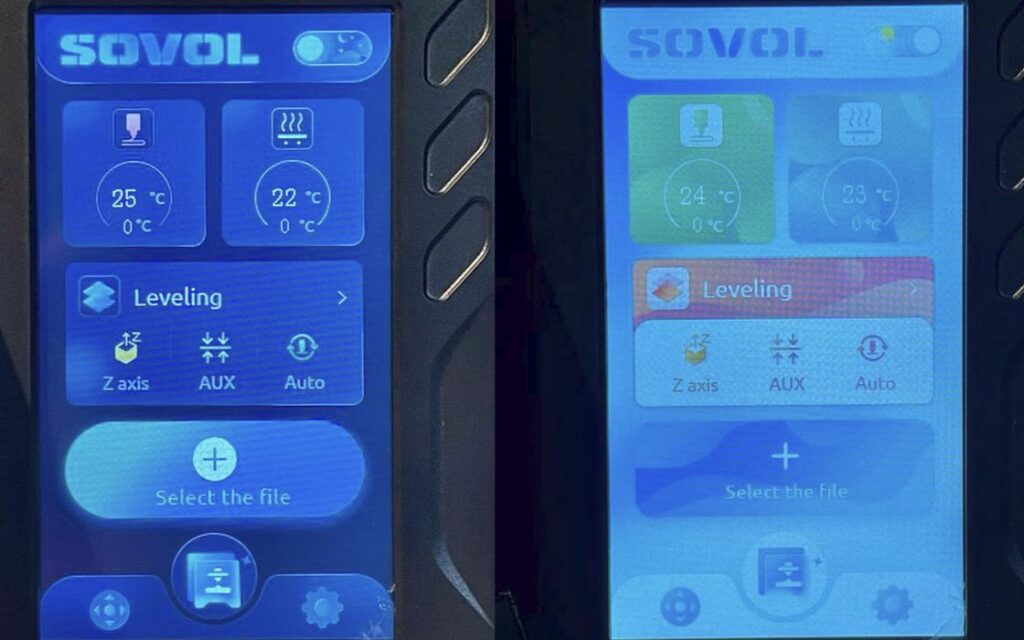
I’m not sure I like either of these UI modes, but certainly the light colored option was very hard to read and should be greatly simplified. Many Asian 3D printer manufacturers seem to struggle with developing truly good user interfaces, but the SV01 Pro’s touchscreen interface is still much better than the old “knob and text” from earlier devices.
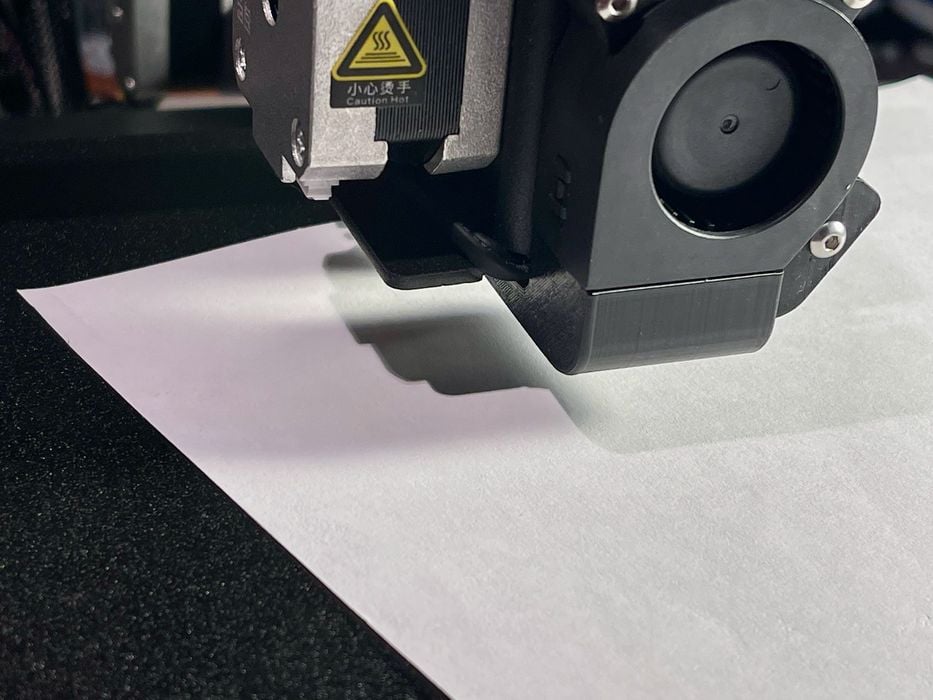
Before printing the SV01 Pro must be leveled, and there is a pretty sophisticated system for doing so. The leveling is split between some manual action and that of a touch sensor attached to the toolhead.
It’s three phases, which you can see above. You begin by setting the Z-gap for the center of the build plate with a piece of paper, and then manually adjust the corners with these easy-to-use adjustment wheels:
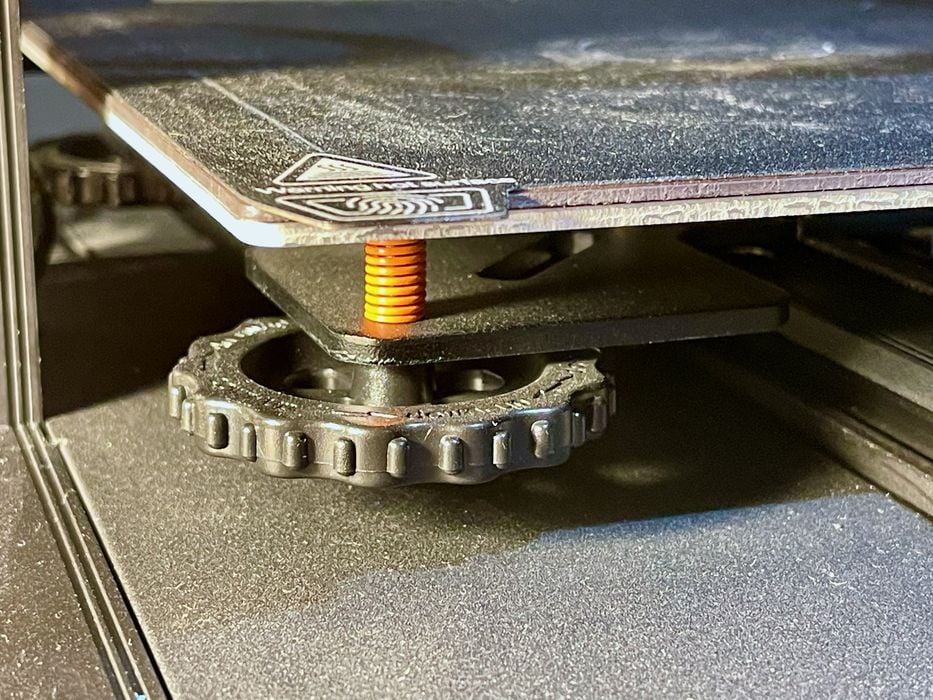
Once the coarse leveling has been done you run the automated leveler that fine tunes it for printing.
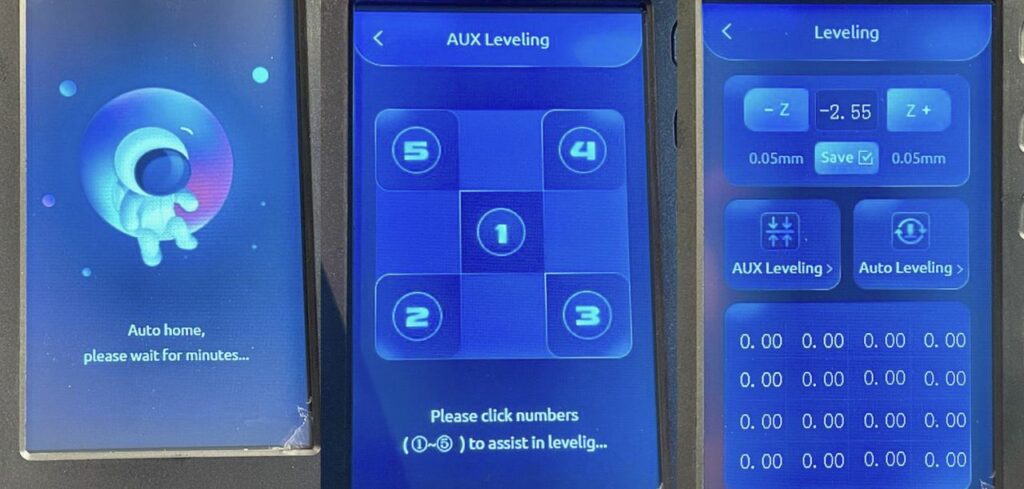
These screens show the sequence of events, with Z-gap, manual leveling and final results of automated leveling. It seems pretty foolproof, although it does take several minutes to go through it all.
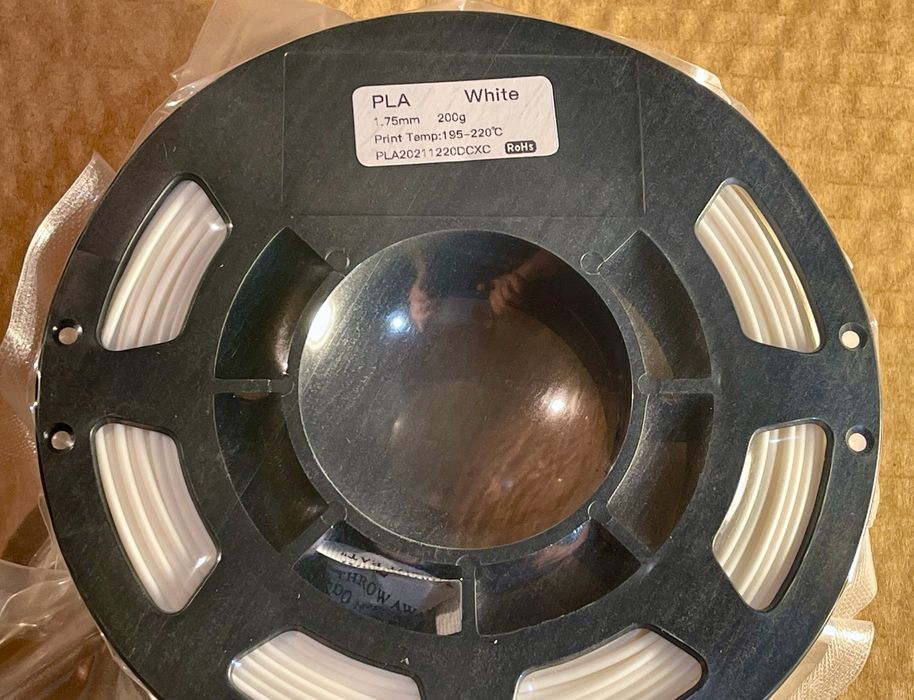
Next is to load some filament. Fortunately, Sovol has included an actual spool of material instead of the awful tiny coils that instantly knot up when opened by other manufacturers. It’s not a lot of material, but it’s very easy to use.
At this point the SV01 is ready for action.
This is part one of a three part series, please read part two and three.
Via Sovol
